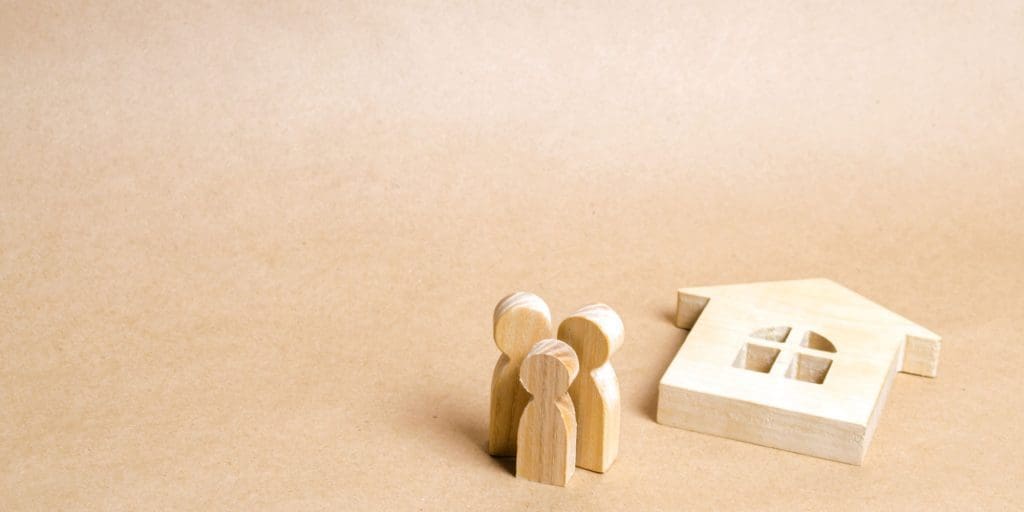When someone lives with an addiction, their entire household feels its effects. Each family member often falls into unique behavior patterns in an attempt to maintain the peace of the house. These are known as family roles in addiction, and they occur frequently enough to have been categorized into six primary types.
With the holidays approaching, people across the country are more likely to spend time with their family members. However, for those who live in addicted households, what should be a heartwarming time of year often feels strenuous and suffocating instead.
To learn how to navigate the challenges of living in a dysfunctional family, it is important to understand each of the six family roles in addiction. By identifying the part you play in an addicted household, you can determine a healthier way to engage with the rest of the family.
Discovering the Family Roles in Addiction

To some extent, the understanding of family roles in addiction stemmed from the relationship between addiction and codependency. In addicted households, codependency occurs frequently between spouses, but it can also extend to parents and children. This was the experience of Sharon Wegscheider-Cruse, who grew up with addicted parents.
As an adult, Wegscheider-Cruse discovered that she showed many signs of depression and other mental health concerns. Furthermore, she believed that many of these feelings related to her childhood. In her subsequent journey to understand her alcoholic parents and their impact on her life, she felt her experiences were often minimized by support groups, as she herself was not an alcoholic.
However, Wegscheider-Cruse understood firsthand that, as someone who lived with an addicted family member, her own mental health had been drastically affected. She knew better than most that her feelings were valid, and as such, she set out to bridge the gap to family members in other addicted households.
After dedicating several years of her life to researching family dynamics in relation to substance abuse, Wegscheider-Cruse identified six primary family roles in addiction. They are not all present in every addicted household, but they offer a helpful guide to show how addiction can affect an entire family.
The Six Family Roles in Addiction
So, what exactly are the types of family roles in addiction? According to Wegscheider-Cruse, the six most prevalent and common roles are as follows:
- The Addict
- The Caretaker
- The Hero
- The Scapegoat
- The Mascot
- The Lost Child
Below, we will go into more detail about each role. We will explain their function within the family, why they act the way they do, and the long-term consequences of such behaviors.
1. The Addict
As the term suggests, the presence of “family roles in addiction” hinges on one individual above all others: the addict. This person’s substance abuse is what causes the five remaining roles to emerge from other family members.
The addict’s behavior largely depends on the type of substance they abuse. In general, they may be unpredictable and prone to aggressive outbursts or periods of depression. Notably, they tend to blame others for their problems and avoid assuming responsibility when possible.
2. The Caretaker
When someone in the family enables the actions and behaviors of the addict, they may fit the role of the caretaker. This person is often the spouse of the addict, but they may also be a child. They tend to make excuses for the addict and do whatever they can to keep the family running smoothly.
The caretaker is one of the family roles in addiction that tries to preserve the family’s external image. As such, they may make excuses for the addict’s behaviors and cover their responsibilities for them. Unfortunately, this places additional stress on the caretaker and prevents the real issues from being addressed.
3. The Hero
Another one of the family roles in addiction is referred to as the hero. The hero is often an eldest child who feels pressured to perform well for the sake of their family. For example, they may pursue perfect grades, impressive sports achievements, or other means of success to take some of the focus away from the addiction in their household.
The hero often possesses a Type A personality, in that they are achievement-oriented, competitive, and try to control the things around them. By claiming power, authority, and success where they can, the hero feels like they can prevent the situation at home from worsening any further—at the cost of their own elevated stress levels.
4. The Scapegoat
Unfortunately, with the addict denying blame and the caretaker absolving them of it as well, someone else has to take the fall for the family’s problems. That burden typically lands on the scapegoat, who is treated as though they are responsible for the dysfunction in their household.
Because of this antagonism, the scapegoat often shuts the rest of the family out. Moreover, they may develop depression or act rebelliously due to feeling ostracized and lonely. The scapegoat is one of the family roles in addiction at a higher risk of succumbing to substance abuse later in their life as well.
5. The Mascot

For years, mental health experts have studied the merits and reasoning behind using humor as a coping mechanism. These concepts form the basis of the mascot, one of the family roles in addiction most inclined to use humor against pain.
The mascot tends to be very aware of the hostile atmosphere at home. In an attempt to alleviate the discomfort, they try cracking jokes and distracting the rest of the family from their underlying issues. Other family members may view the mascot as naive or immature, but they are often one of the most sensitive.
6. The Lost Child
The last of the six family roles in addiction is known as the lost child. This person typically goes unnoticed by the rest of the family. In fact, they may actively try to do so by keeping their head down and avoiding confrontation when possible.
As the name suggests, the lost child then proceeds to slide under the radar of the rest of the family. Thus, any attention someone (especially the caretaker) would have given to the lost child shifts to the addict instead. Whether the lost child intended it or not, feeling invisible in their own home can cause issues with their self-worth and lead to long-term challenges expressing their needs.
Healing From Dysfunctional Family Dynamics
As discussed previously, most family roles in addiction revolve around unhealthy behaviors. Because of this, living in an addicted household increases the entire family’s risk for mental illness. If you have developed a mental disorder (like depression) due to a family member’s substance abuse, you can treat your symptoms at Springbrook Behavioral Hospital.
However, due to the cyclical nature of addiction, you may continue to experience difficulties at home as long as addiction has a place in it. Therefore, the best way to improve home life is often for the drug or alcohol-addicted family member to seek treatment. Fortunately, to that end, Springbrook Behavioral Hospital can still help.
Residential Rehab for Drug and Alcohol Addiction
To break the cycle of substance abuse and recover from the impact of family roles in addiction, someone may pursue inpatient addiction rehab. In addition, if they have any other concurrent mental health issues, they may benefit the most from dual diagnosis treatment.
A dual diagnosis program uses a combination of detox services and mental health treatment modalities to tackle every aspect of addiction. The inclusion of therapeutic activities commonly used to treat other mental illnesses helps to address any co-occurring mental health issues.
For example, some of the treatment options patients participate in during our dual diagnosis program include:
- Individual therapy
- Group therapy
- Family counseling
- Medication management
- Relapse prevention
- Discharge and aftercare planning
When it comes to repairing relationships frayed by family roles in addiction, family counseling serves as a crucial component. It keeps families involved in the treatment process and allows them to convey their feelings in a safe, therapeutic space.
Overcome Family Roles in Addiction at Springbrook Behavioral Hospital
With the proper support and access to professional resources, you can unlearn the behaviors of family roles in addiction. Whether you struggle with substance abuse yourself or have lived with someone who does, Springbrook Behavioral Hospital can help you address any mental health concerns.

